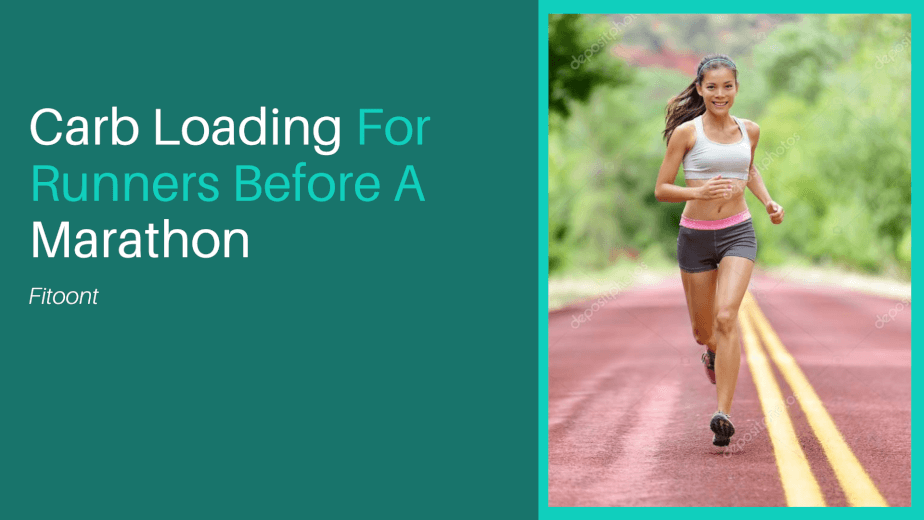We will explain everything you need to know about pre-marathon carbohydrate loading. In this article we will look at the need for Carb-loading before a marathon or race, as well as sifting through misconceptions.
The date of the marathon is approaching, which we will run this Friday in Michigan, and in the week prior to the test we only have to rest, visualize and nourish and hydrate ourselves correctly to be able to give the best of ourselves on race day.
Although the subject of hydration is usually quite clear, with the subject of food some doubts may still arise: what do I have to eat during the week prior to a long-distance event such as a marathon? Many of us choose to carry a carb loading before a marathon to get to the starting zone with full glycogen stores. Do you know how doing it well?
Carb Loading Before A Marathon
In recent years, we have been able to see some conflicting messages about carbohydrates and their progress through sports media or communications.
We come across attacks from some quarters – most notably from proponents of the low carb / high fat diet, who claim that eating fewer carbs can cause us to lose weight, be faster and healthier overall.
Why does a carbohydrate load?
When it comes to participating in a medium or long-distance race, obviously training is the most important part of the preparation, but nutrition within these challenges is also a fundamental part since it can condition our performance.
The energy supply in endurance sports, such as long-distance running, is mainly through aerobic metabolism, which can use both glucose and fat and, to a lesser extent, protein, for energy.
In the case of prolonged exercise, such as a marathon, the preferred fuel for our body is usually glucose, which we can store in the form of glycogen (branched chains of glucose) both in the liver and in the muscles.
May You Be Interested In: Muscular Strength Exercises For Overweight Stomach Loss
Carbohydrates, the king of fuels
One thing is certain: carbohydrates are still the undisputed king of fuels for a long, hard effort.
Therefore, if you want to reach your full potential, you have to be well fed when you reach the starting line – that requires a carb-loading before the marathon or race.
The key point to keep in mind is that:
The body is only capable of storing enough glycogen (carbohydrates in their stored form) for 90 minutes of hard exertion (above 60 percent of your aerobic maximum).
If your goal is a sports activity that will take several hours to complete, we recommend that you purchase a bar to take you on the arch or starting line. This does not mean that you have the green light to go running to the store to buy a package of potatoes or some chocolate. Essentially, a carbohydrate load means eating healthy and wisely, but with a higher proportion of carbohydrates than usual.
“Be careful with binge eating”, in them we do not calculate the consumption of foods rich in sugar that we eat. So it is possible that we did not obtain the results that we want. The way to load carbohydrates must be smart and effective.
How to load carbohydrates?
In the early days of carb-loading, in the past, it was believed that an initial phase of exhaustion was necessary – a few days of minimal carbohydrate intake (and, inevitably, low energy consumption) – then continue consuming abundant carbohydrates, a couple of days before the race.
No, it is not necessary to get to make such an austere or long mess to get a good load.
With proper training and an increase in carbohydrate intake of around 10 g/kg/day, an athlete is able to do a load in just 36-48 hours before the marathon or race.
Ten grams of carbohydrates per kilogram of body weight may seem like an excessive amount for our digestive system but it is not,
Many elite athletes regularly consume 8 g/kg/day, so the increase of the load is nothing dramatic or excessive.
Keep in mind that some of these additional carbohydrates can be consumed in liquid form – fruit juices, sweetened tea, smoothies, etc.
There is no need to ingest everything you need through a plate of rice or pasta.
Following this carbohydrate-rich diet, for two or three days before the event or goal should not leave us feeling uncomfortable or bloated.
But it is worth experimenting with different foods that are high in carbohydrates to find out which one works best for us.
You May Be Interested In: Science To Lose Belly Fat And Get Flat Stomach
Where can we get that glucose that forms glycogen and that we “save” for race day?
Basically carbohydrates: that’s why we do a carbohydrate load before a medium or long distance race.
The most widely used protocol to carry out a carbohydrate load is the ‘modified protocol’: according to this protocol, during the days before the test we reduce the intensity and duration of our workouts while we progressively increase the carbohydrates we consume.
The most common is that during the three or four days prior to the race we increase the amount of carbohydrates in our diet until we reach 60-70% of the daily calorie intake, approximately. In this way, we can arrive with full glycogen stores and we can delay the onset of fatigue in the race.
How to split carbs?
Let’s see the amount of carbohydrates distributed during the different meals to carry out the pre-marathon load.
A 70kg rider would require about 600-700g of carbs each day, and the one-day diet for example could be this:
- A large bowl of oatmeal (60g carbs).
- Large banana (25g).
- A glass of juice orange (25 g) for breakfast
- Two tea pastries with jam (45 g)
- Sports drink (40 g) as a mid-morning snack
- Two sandwiches (four slices of bread) with the filling of your choice (50 g)
- Iced cinnamon cake (35 g), can of lemonade (25 g) for lunch
- Banana smoothie (20 g) and a cereal bar (30 g) as an afternoon snack
- A large plate of pasta with tomato sauce (80g)
- Three slices of garlic bread (50g) for dinner, with two glasses of juice (35g)
- And as a snack in the evening, two muffins, toasts, jam (70 g).
You may think you eat a lot of carbohydrates in your normal diet, but how many g/kg/day do you really eat carbohydrates?
Any carbohydrate worth?
Obviously, we must rely on healthy options, not junk food, and opt for complex carbohydrates , which will not cause us a glucose spike. The carbohydrate load should not be an excuse to put ourselves on top of junk food, but a food protocol that helps us perform better on race day.
We can choose whole grains (in the form of bread, pasta or rice), vegetables, legumes and nuts. We must also be careful not to go overboard with fiber to avoid stomach upset.
Likewise, it is important, on the one hand, not to wait until the last moment to do this load, but to start a few days before the race to avoid heavy stomachs or other stomach problems and, on the other, to stay well hydrated with water to be able to store glycogen correctly.
Is the carb-loading before a marathon essential?
It is not essential, but it can help us delay the onset of fatigue during competition. In any case, what we do on the day of the race will depend on what we have rehearsed during training: the experiments, better during our preparation and never on the day of the race.
Imagine how you could improve your performance if you really consumed the grams of carbohydrates necessary to make a hard effort for a long period of time.
Diet programs for our telemedicine platform
If you want a successful marathon and there is a strong competition with athletes, and after reading this article, you do not know how to load carbohydrates. You can talk with our doctors and dietitians on the Fitoont telemedicine platform for free and without any costs
If you liked this article, share it!
References:
1-Carbo-loading: tips for endurance athletes
2-How to Refuel After a Marathon


